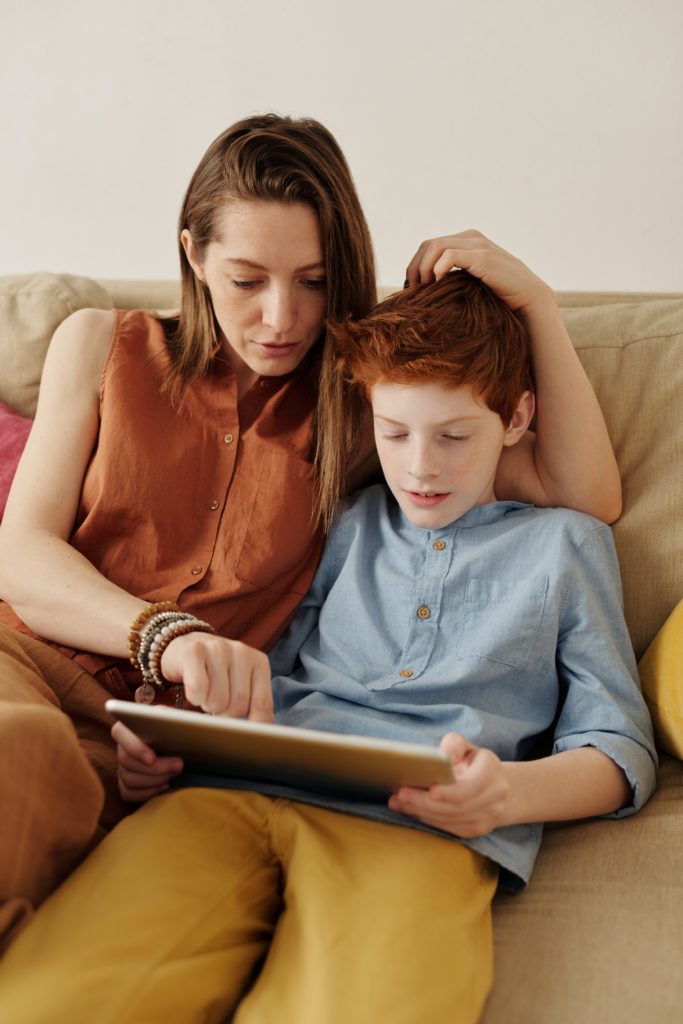
Dear Katherine: My Son Gets Anxious When We’re Apart
Dear Katherine: My Son Gets Anxious When We’re Apart https://csuiteold.c-suitenetwork.com/advisors/wp-content/uploads/sites/5/2021/12/pexels-julia-m-cameron-4145348-683x1024.jpg 683 1024 Katherine Sellery https://secure.gravatar.com/avatar/436cddde358300424bba7645023aebea?s=96&d=mm&r=gDear Katherine,
My son is very nervous whenever we’re apart. When he’s at school, he wants me to be working from home so he knows that I’m there. Even if I’m just around the block, he stresses out about it.
He’s afraid that I won’t come back or that I won’t come to pick him up.
He’s 10 years old, and I want him to enjoy school and other activities that I’m not present for.
What can I do?
Sincerely,
Trying My Best
Trying My Best,
My heart goes out to your son. He’s dealing with some big feelings! Your situation sounds like a classic case of separation anxiety.
What I want to emphasize first and foremost is that it’s perfectly okay for him to have these feelings. Everything we experience in life serves a purpose—even our most negative emotions. We should never tell our kids that their feelings are bad, scary, or wrong. Doing so is one of the biggest parenting mistakes we can make.
True self-acceptance has to come first if you want your son to be able to change. When we judge ourselves or our children, we create an unsafe environment for this transformation to take place.
I have two pieces of advice to help you both through this challenging period:
1. Be a supportive parent while your son sits with his feelings.
Your son needs to learn how to be with the parts of him that are anxious instead of letting them define him. Help him create space between him and his anxiety. You can start by talking about it together.
Try saying, “Wow, something inside you is feeling really worried.” Provide space for him to talk about his concerns and how they make something in him feel. With practice, he’ll be able to turn toward these scary feelings, understand what they’re trying to tell him, and get bigger than what’s bugging him.
Remember, your son can only understand these feelings if can separate them from his identity. If he thinks that he is anxious, instead of recognizing that something inside of him feels anxious, he won’t be able to accurately assess any associated feelings.
This approach will help your son cope with negative feelings for the rest of his life. But there are other immediate actions you can take that will help his anxiety, too.
2. Find ways to be with him, without being with him physically.
Separation anxiety is a common issue in parent-child relationships. Fortunately, you can help your child feel connected to you even when you’re apart. Together, brainstorm ideas that could help him through the day.
Here are a few to get you started, but this should be a collaborative effort with your child:
- Give him a photo of you to keep in his pocket. When your son misses you, he can take out the photo and look at it to remember that you aren’t far away.
- Send him messages throughout the day. If your son has a phone that he can use at school, message him periodically to check-in. No phone? No problem. Write him little notes to keep in his folders, lunchbox, or pencil case to remind him that you’re thinking of him.
Separation anxiety can be difficult for parents and children, but I know you two will get through it together!
Love and Blessings,
Katherine
P.S. The Mother Side on Good Morning Washington (ABC7, WJLA) was so kind to have me discussing how we can be more mindful in our approach with our children! I’m so grateful to be able to introduce our gentle parenting all over the world. Thank you so much for supporting the Conscious Parenting Revolution message!


